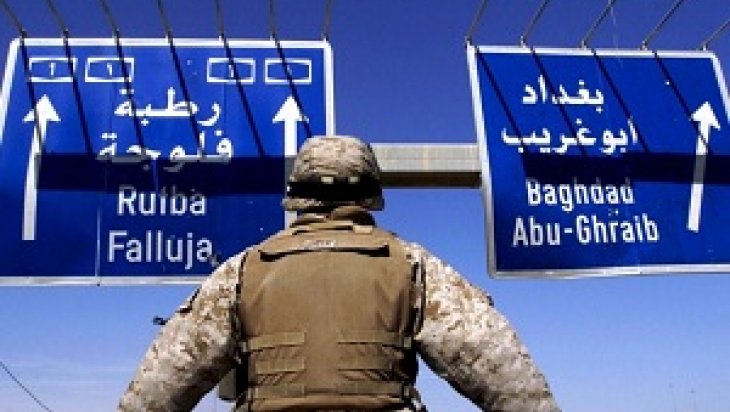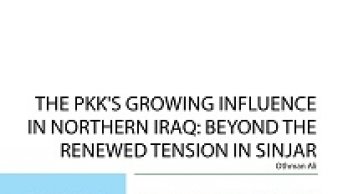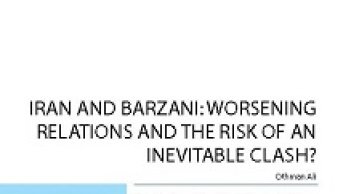The Political Dimensions of the Battle over Falluja in Iraq

Although the battle of Falluja is not devoid of military significance, it has morepolitical consequences for Iraq. Internally it is being fought along Shiite-Sunni lines, and it is an attempt to unite the cracking Shiite camp. Both Prime Minister Haider al-Abadi, and Salim al-Jabouri, speaker of the Parliament, are using this battle to boost their positions against the ongoing and growing challenges to keep their posts.Finally the battle is one more channel and scene in which the rivalry between Iran and USA is being played out in Iraq.
This battle has to be seen in the context of a series of many similar battles in which the government of al-Abadi has used Iraqi army units,Iranian trained Popular Mobilization Units (Hashd al-Shabi),and USA trained Hashd al-Ashairi (Sunni Tribal militia), with considerable US-led coalition air support,to roll back ISIS military presence in Iraq. The battle in Falluja is in many ways the replay of the earlier battles for re-capture of the areas controlled by ISIL in Ramadi and Tikreet and the success of this battle will assist greatly in the eventual and more serious confrontation for the recapture of Mosul from ISIL. Moreover, the Baghdad government has considered the presence of ISIL in Falluja, which is only 46 kilometers away from Baghdad, a serious military threat and the last stronghold of Sunni resistance in the south of the country. The security officials consider the city and near-by towns as a source of the growing ISIL-initiated military attacks inside Baghdad.The loss Falluja would deal a blow to ISIS, according to many observers. In addition, the retaking of Falluja will enable the government to control the main highway from Baghdad to both Jordan and Syria, which has a strategic military value for ISIL, Iran, and Iraq.
The battle which started on 23 May 2016, codenamed "Break Terrorism,” is being carried out in three stages. According to press sources, the30,000-strong Iraqi military units and supporting militia first captured the outlying towns and villages, such as Karma, about 16 kilometers northeast of Falluja and town of Saqlawiya, about 10 kilometers northwest of the city, and a dozen of villages in the area. The last stage is the storming of city center by combined units of counter-terrorism, the federal police, and Sunni tribal militias. These forces are engaging the remaining 500-1000 ISIL fighters who were mostly residents of the city.
Contrary to the optimistic predictions of the Iraqi leaders,some experts predict a different course of conflict. For instance, an expert on Islamic groups, Hassan Abu Haniya, states that the battle over Fallujah would be different from the ones fought earlier by ISIL, “this will be very difficult one and they will fight to the end and there will be no tactical or strategic withdrawal by ISIL.”On the other hand, the battle has created dire humanitarian condition for 50,000 entrapped residents of Falluja. Also, there have been reported executions of men and older boys in Falluja because they refused to fight on behalf of ISIS.
Although Iraq government promised to create humanitarian safe corridors, theycould not be easily materialized due to the iron-fist rule of ISIL which wants to use them as human shields, and the heavy fighting. Peoplewere also afraid to leave the city due to their fear of militias.Sunni law makers also called upon Prime Minister Abadi to end some of the reported atrocities. Eventually, there have been some halting of the fighting to allow for the escape of civilians from Falluja and deliver humanitarian assistance.
The battle over Falluja has evolved into yet another round of the deepening sectarian tensions in Iraq. Therehas been many documented instances ofsectarian themes used by various Shiite-dominated militia forces. Such developments risk undermining the unity of Iraq every day.
Some observers have argued that Abadigovnment has timed the attack on Falluja to divert attention from the deep crisis which his government has been facing. It is noteworthy that the Shiite political groups are facing serious internal cracks and there are many calls from different Shiite groups for the resignation of prime minister. It was symbolically interesting to see Abadi fully dressed in all-black fatigues of the Iraqi Counter- Insurgency Forces, sitting in Operation Command Center and stating that he is directing the operations himself. Furthermore, just before the commencement of the current military operations, thousands of Shiite militias were facingeach other in the streets of Baghdad and other cities. The Falluja operation has partly reduced the tensions in the Baghdad policies.
Finally, the USA and Iran are using the battle over Falluja to signal their primacy in Iraq. The US led-coalition has dictated that the pro-Iranian Shiite militias should not enter Falluja and threatened to attack them if they violate this condition. The US trained Iraqi Counter-Insurgency, Iraqi special elite forces, and three thousand Sunni tribal militias have beenassigned key role in the ongoing battle.
Iranian government and their Iraqi allies, on their part, were quick to state that the timing and terms of the current fighting have been planned and executed by them. In fact,according to some press reports, QasimSulaimani, the head of Quds Force, was seen in Anbar Command Operation unit, leading the battle. HadiAmery, the head of the PMU, confirmed his being in the operational command. Muin al-Kazmi,a commander of Badrmilitia stated that his forces are actually leading the main battles and laid a siege on Falluja.According to his account, they were the ones to let Iraqi counter-insurgency to enter the city.
The leading role of Iran in this battle has been confirmed by international reporting. The USA seems to have been concerned that pro-Iranian militias committing more atrocities in this battle can inflame sectarian war further. Such actions may also foilAmerican attempts to enhance the position of Abadi government. Moreover,the USA seems to calculate that if this battle succeeds without major atrocities-like those committed in Tikret and other regions-, the American effort to expel ISILwill be greatly facilitated.
Considering such factors discussed so far, the battle over Falluja has many significant military and political dimensions. The way in which battle will unfold will have many repercussions for the future of the war against ISIS, hence the future of the Iraqi politics in the years ahead.







